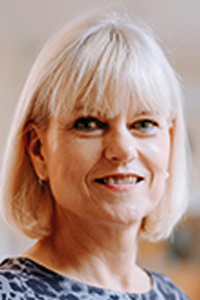Shared care records are the cornerstone of joined up care delivery. Being able to access information about a patient's health and care in real time, is helping our staff provide better, safer and more effective care.
Across Yorkshire and Humber, the shared care record – underpinned by our Interweave system – is saving clinical and administrative time, giving our social care partners real time access to health information, and allowing us to transfer ambulance information real time with our emergency departments. For our population, it means for example that they can have a single end of life care plan. In short, it is changing the way we're able to work across our system.
Our team is the foundation of our success
Our dedicated shared care record team have adopted a "lean start up model" that enables us to deliver changes quickly, and react to the needs of our staff and population. In software development, this is known as agile. This is quite a new way of working in the NHS. It means we sometimes feel like we're executing page three of the handbook while page five is still being written. But it does mean that:
- We can build things quickly, in the space of eight weeks in some cases. An excellent example of our agile development is designing, building and using a minimum viable product for the international patient summary for the G7 in 12 weeks.
- We don't let perfection be the enemy of the good.
- We can pivot when things change. Yes, that means we haven't delivered all our expected benefits – but some of our initial assumptions, we've now learned, were wrong.
- We have created digital systems in a way which means other people can take forward our ideas, iterate and improve them.
- Our design is based on open standards and platforms, it's internet first and it's accessible.
Practically this involves us committing to a new system release every three weeks, publishing our workings opensource on Github and using tools like Jira to crowdsource ideas for improvement and expedite approvals. We made sure the product was cloud based, which meant we haven't experienced any technical debt (i.e. we won't have to replace old infrastructure). And we use modern application programming interfaces using fast healthcare interoperability resources.
Generating momentum
We've also put time and energy into sharing good news stories and spreading the word of our progress. This has been important in building and maintaining momentum as our tool has grown. We've been quite open about our journey. Part of this has meant we have built a positive culture for learning and development within our team – staff actively want to learn new ways to use the tool.
Importantly, we have worked across health and social care, not just the NHS. We have also created the Yorkshire and Humber Care Record academy, in partnership with Health Education England, to support teams to adopt our record systems and share best practice. Digital is more than just the technology. It also involves investing in people and teams.
Having the support of Humber Teaching NHS Foundation Trust has also been critical to our success. In hosting the shared care record platform, the trust showed they were committed to joined up care, even in the very early days. The trust also agreed to take the role of data processer for the data controller. Trust staff wanted to be ahead of the curve, and so adopted our tool with enthusiasm. We played to the idea that they were early adopters, trailblazing new technology across the health and care system.
Advice for others
We haven't got everything right, but collectively we have learned lessons that we would advise those earlier on in this journey to reflect on:
- The purpose of shared care records is to share information for the benefit of patients and staff. Throughout everything, don't lose sight of this. Don't get bent out of shape by other factors or issues. The more you share, the easier it will be to understand each other.
- It's cliché, but always expect the unexpected. As a board member, you don't have to be an expert. But you do need to be flexible because things will change.
- It's never too early to share successes. Talk openly about the small, quick wins. Make staff aware, even if you've just fixed a technical bug, or slightly improved usability.
- If you can, get the funding and business case in early. Admittedly, this is hard in the current environment.
It is easier now for us to talk about the success of our shared care record because we've had several years of delivery. But key to all of this has been the leadership shown at both trust and integrated care system level. All board members, including chief executives, need to have shared care records on their radar because data and interoperability is critical for managing population health and tackling health inequalities.
Michele and Lee shared their reflections as part of a Digital Boards 'deep dive' event held in November 2022. They were joined by Professor Stephen Eames, chief executive of Humber and North Yorkshire Health and Care Partnership, along with Neil Bartram, business relationship manager at North Yorkshire County Council.
About the authors


